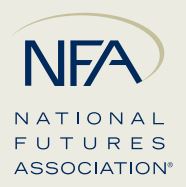The United States has gained a sterling reputation over a number of years for its highly effective consumer protection laws which cover a wide range of industry sectors and dictate the way in which goods and services must be provided to retail customers.
The retail FX industry became a subject which the regulatory authorities in the United States took a very draconian stance on subsequent to the financial crisis five years ago, by raising the net capital adequacy requirement for FX firms to $20 million. This saw off the vast majority of retail market participants, with the institutional sector left to invest in entirely new corporate methodology to cope with the demands of the Dodd-Frank Act.
Today, the National Futures Association (NFA) has begun to extend its scrutiny beyond FX firms by considering new customer protection rulings for other market participants currently unburdened by such matters.
The NFA released an announcement today stating that it views the proliferation of member responsibility actions (MRAs) issued to its members as a matter for concern, due to the fact that 92% of the issued MRAs having been issued against CPO and/or CTA Members, and is therefore seeking input from CPO and CTA Members on the concept of imposing a capital requirement on CPOs and CTAs.
A Dim View Taken Toward Misappropriation
According to the NFA, the majority of the MRAs issued to CTA and CPO members involved the misuse of customer funds, whether it being misappropriation for nefarious means, or the somewhat negligent practice of combining operating capital with customer assets in order to increase cashflow, a practice which is illegal in North America.
Further cases involved organizations making false declarations of net capital amounts to the authorities as well as providing incorrect performance data.
As a result of the relative prevalence of these actions, the NFA is reviewing the current regulatory structure applicable to CPO and CTA operations. In particular, the NFA is looking at ways to strengthen the regulatory structure governing CPO operations to provide greater protection for customer funds, as well as exploring ways to ensure that CPOs and CTAs have sufficient assets to operate as a going concern.
What Does the Industry Think?
The NFA's Executive Committee approved the issuance of this request for comments to solicit CPO and CTA Member input on the concept of imposing a capital requirement on CPO/CTA Members and other customer protection measures.
Over the last 18 months, the NFA has focused significant regulatory efforts on implementing protections over customer funds held at Futures Commission Merchants, especially following catastrophic corporate failures such as those experienced by MF Global and Peregrine Financial Group in which customers suffered substantial losses. Indeed MF Global was pursued closely by the Commodity Futures Trading Commission subsequent to its demise, however American sentiment toward protecting its citizens favors the prevention is better than cure approach.
The NFA also recognizes that there are risks associated with customer assets held by CPOs, and as a result, recent disciplinary actions taken against CPOs have involved the improper use of pool funds.
Further matters for consideration by existing members are proposed methods for striking off inactive NFA members, with respondants being required to state what they consider to be valid reasons for the suggestions.
Reporting Paper Trail
In addition to today's announcement concerning CPOs and CTAs, the NFA has also begun to bear down on Introducing Brokers (IBs) ) which operate under its auspices.
It has today come to Forex Magnates' attention that the NFA has issued a series of stipulations regarding examinations of the business which IBs conduct.
The exhaustive examination has been extended to cover very deep investigations relating to general information about each company's business activities, anti money laundering procedure, company registration, record keeping, cash activity, use of promotional material, the reviewing of tapes of client solicitations, supervision and the financial situation of each IB.
The items which the NFA intends to check for each IB leaves absolutely no stone unturned and will be carried out by the NFA's New York and Chicago offices collectively.
The Third Party Black Hole
The embarrassment caused to the industry post-demise discovery that Peregrine Financial Group had outsourced its accountancy to a one-man-band operating from a suburban private house has led to a great many red faces among regulatory authorities.
The proposed rulings by the NFA indicate that it wishes to monitor such use of third parties and check their credibility. On this basis, the NFA sets forth to ask its members if the preparation or verification of account statements by an independent third party could make it more difficult for a CPO to misrepresent net asset value or misappropriate funds and thus provide greater integrity to the managed funds industry.
Additionally, it intends to establish whether the benefit of having independent third party verification could outweigh the added costs.

Indeed, if this proposal takes shape, clients of commodity pool operators in North America will be subject to even greater protection to the already high standard to which they have become accustomed, however the actual amount that may be required for firms to stump up still hangs in the balance.
Whether the viability of operation as a CPO or CTA will remain as attractive if the NFA arrives at anywhere near the figure which FX firms are required to maintain is a matter for future consideration, however it most certainly may lead to less publications by the Commodity Futures Trading Commission relating to the latest censuring of commodity pool rule transgressors.
It is most certainly apparent that America is indeed land of the free, home of the ultra-conservative financial markets regulator and discerning customer.















